- Home
- Alex Irvine
Tom Clancy's the Division Page 2
Tom Clancy's the Division Read online
Page 2
All of that had changed on Black Friday, when some nutcase had unleashed a weaponized smallpox on the world, starting right here in New York City. Within weeks it had spread all over the world . . . and Diaz’s wife, Graciela, was dead. Maybe she had touched one of the twenty-dollar bills first infected with the virus—thus the nicknames Green Poison, Dollar Bug, et cetera—or maybe she’d caught it from someone who had. In the end, it didn’t matter. She had died along with millions of others.
Now, five months later, order wasn’t exactly restored in New York, but spring had brought new hope. Pretty soon, Diaz figured he would be able to leave New York and head back home. His kids were there. Mobilized in DC, he’d come up to New York after the first wave of Division agents were killed or went rogue in the violent chaos after the outbreak. At that time, New York had needed help and things in DC had seemed relatively stable by comparison. He wasn’t sure that was the case anymore . . . and either way, he’d been away from Ivan and Amelia for too long. The JTF was supposed to be caring for them, but Diaz wanted to be certain.
Getting back to DC was still his plan, but before he could check in at the JTF safe house down on Forty-fifth and Broadway and exit the Dark Zone, he had to see where this woman was going and why. He couldn’t just leave her to wander around on her own.
She stayed on Sixtieth to Madison, then turned south. Fires had raged along this part of Madison, and it was mostly abandoned. Fifth and Park were different. Entrenched bands of raiders and bandits had carved out territories along the entire stretch of those avenues between Fifty-second and Sixtieth or so. The boundaries fluctuated.
Trailing her, Diaz was suddenly sure she was choosing her route to avoid that dangerous stretch of Fifth and Park Avenues. She knew this part of the Dark Zone. That made him real curious. He was also curious about the Benelli Super 90 shotgun slung over her right shoulder, next to a pack that sure looked like Division issue . . . just like the Super 90 was a standard room-sweeper that some agents preferred. But she didn’t have a watch, and there was no brick on her pack. She wasn’t an agent. So who was she?
She cut back west on Fifty-fifth, and Diaz’s alarm bells went off. At the corner of Fifth and Fifty-fifth, the Fifth Avenue Presbyterian Church was home to a gang of apocalyptic cultists. They would be on her like a school of piranha if she went that far. He stepped up his pace, closing to within a hundred feet of her before she noticed and looked over her shoulder. Pretty good situational awareness, he thought. He saw her clock his Division gear and mentally categorize him as no threat. Interesting. That meant she knew she wasn’t doing anything she thought would bring her into conflict with a Division agent.
Even so, she was still walking straight toward the church cult.
Diaz cut up Madison at a run, and then headed west on Fifty-sixth to get ahead of her. He scrambled through the ruins of a restaurant that had burned in the aftermath of the plague. Behind it was a narrow alley that ran between the church and the looming skyscraper just to the north. He hopped the fence and came around to the front of the church.
A fresh body dangled from the gallows in the church courtyard. Diaz filed it away. He, or another Division agent, would have to do something about the cult. But today he had another mission. The heavy wooden doors facing Fifth Avenue opened and a group of the cultists saw him. He stayed facing them, his G36 aimed low, generally in their direction but not targeting any one of them specifically. “Stay cool,” he said.
They looked past him and saw the woman. She saw them, too—and she saw Aurelio.
Her response intrigued him even more. She cut across the street to give herself some room, but she didn’t panic, didn’t run. She was no average civilian, that much Aurelio could tell. She passed down the block, staying on Fifty-fifth toward Sixth Avenue. Aurelio backed toward the street. The cultists came out onto the church steps, their eyes boring into him. He’d seen that look before. They wanted him on their gallows, too. Pulling the trigger on the G36 would solve a lot of problems, he thought . . . but until they made a hostile move, he couldn’t justify it. Per Directive 51, he could have mowed the whole group down and nobody would ever have said anything, but that wasn’t what Aurelio Diaz—or the Strategic Homeland Division, commonly shortened to SHD—believed in. He backed into the courtyard gate, opened it, and stepped out onto the sidewalk.
“You stayed cool,” he said, and kept walking. None of them followed him. When he got to the corner he saw the woman at the far end of the block, almost to Sixth. She turned north, surprising him. She was definitely taking the long way to wherever she was going, and although it made sense for her to avoid Fifth Avenue, clearly her intel about the area wasn’t complete or she wouldn’t have gone anywhere near the church.
So where was she going?
Fifty-eighth Street, as it turned out. When she got there, she stood for a long moment looking at a nondescript open storefront on the north side of the street next to a parking garage. A shredded awning flapped over the storefront. The inside looked like it might have been under construction. He couldn’t see much.
The woman crossed the street and went inside. Interesting, Diaz thought. There was nothing he knew of in that building. Nothing in the garage would be of interest. Over the old store were a few floors of ordinary windows. He thought he saw light in one of them, but couldn’t tell whether it was just reflected through a different window from one of the skyscrapers on the same block.
Diaz decided to stay where he was for a few minutes, see what happened. He’d developed a pretty good sense for when people were up to no good—you didn’t survive in this ravaged New York without one—and he wasn’t getting that sense from her. Still, she’d walked a good mile or more after entering the Dark Zone within five hundred yards of her target location. That piqued his curiosity.
If she came out soon, he would stay on her trail until he left the Dark Zone. Partly that was just because he thought she might need an escort, but also he was curious. Usually people tried to get out of the Dark Zone, not in. What was she up to?
3
APRIL
She’d spent the spring looking in the Dark Zone, following clues she’d pieced together over the winter. Over the past weeks she had become familiar with every block of the barrier cutting the zone off from the rest of the city. She knew where there were holes. She knew where underground connections between buildings led in and out. None of those holes and tunnels stayed open long. Either the JTF sealed them or criminal elements took control, making them too dangerous to use. But as quickly as they closed, others appeared. Keeping an area the size of the Dark Zone completely sealed was impossible.
The problem was, the place she needed to go was in the worst part of the DZ, just south of Central Park. The southern areas were a little easier to move around in. Still dangerous, but the main JTF base was closer to the southern edge of the Dark Zone. In the months after the Dollar Bug tore through New York, the JTF—and the Division—had begun to restore a semblance of order from about Thirty-fourth Street south. Not so in the north. Up here, Division agents were rarer and the JTF presence was limited to fortified safe houses scattered along the edges of Central Park and the surrounding neighborhoods. She had learned to assess how dangerous an area was based on how often she saw a Division agent’s signature gear: the orange circle on the backpack, the optical and audio gear, and most importantly the autonomy. They moved where they wanted, with no rules of engagement beyond a mandate to do what was necessary to keep civilization from collapsing utterly. The more of them she saw in a particular area, the more dangerous the area tended to be—and areas where they usually moved in teams rather than alone were the most dangerous of all.
The northern sector of the Dark Zone was one of those areas.
So she watched, she played it cool, she took her chances as they came up. She only entered during the day, staying close to groups she trusted and ducking out the minute things got hot. Some
days it was impossible to get into the Dark Zone. Division agents or JTF patrols turned her back, or there were firefights . . . or fires. Entire blocks were burned-out shells, thanks to apocalyptic gangs that popped up like mushrooms after the plague struck. Even when she got in and had a chance to scope out an approach to the building she wanted, sometimes she got into tight scrapes. More often than not, she’d been able to avoid violence, and she owed her life to Division agents three or four times over. A couple of times she’d had to shoot someone. Even though she knew they couldn’t have been prevented, those deaths weighed on her. She didn’t want to live in a world where lethal violence was as common as hot meals.
But that was the world right now, or at least that was New York. Better than it was, for sure, but still a long way from normal. What would normal even be now, with millions dead, the government collapsed, communications severed, great cities emptied, farms lying fallow . . . she didn’t know. After a while, normal was whatever you woke up to in the morning. People had to adapt. She had adapted.
Partially this was because the plague and its aftermath had taught her she had a resilience she had never suspected. Six months ago, sitting in front of her laptop, she would never have imagined vaulting a crumbling barricade into a quarantined hell. But she had a mission. More like an obsession, burning in her gut as she survived the plague and the murderous chaos that followed. It had sustained her through freezing nights and starving days, keeping her focused, giving her something to live for. Her most important clue was an address: 117 w 58th.
Today she had finally made it there, at least in part because she’d managed to draw a Division agent along with her. She’d spotted him on the rooftop back by the corner of Central Park, and chosen her point of entry into the Dark Zone hoping he would either confront or follow her. With him following, she’d been able to focus ahead, and get here faster. Mentally she thanked him, and wondered what his name was.
The front of 117 West Fifty-eighth was open, like it had been under construction or something when the Dollar Bug hit. Inside was a trashed space that at first glance looked like it used to be a bike shop. She stepped inside, trying to keep her breathing level. This was it.
Before she did anything else, she took a moment to listen. Human presence in a building revealed itself in various ways. Not just sounds, the quick intake of breath or the small scrape of someone shifting their weight—no, there was a sense of presence that registered somewhere behind the conscious mind. Empty buildings felt empty. She’d learned at some point to tell the difference.
Ahead of her, at the rear of the shop area, was a stairway leading up, and past it a fire door jammed open. Through that doorway she could see a hallway disappearing into the interior of the building. To the right was another, shorter hallway, with a door wedged open on the far side. She flicked on her flashlight and through the open door she saw a stairway going down.
She descended slowly, listening hard and hearing nothing except the soft scrape of her feet on the safety strips that lined each stair. When she got to the bottom, she still heard nothing. The basement was a maze of narrow hallways opening into boiler rooms, maintenance closets, electrical panels, the circulatory and nervous systems of the modern high-rise. She looked quickly into each and moved on. Then she came to a larger room and stopped in the doorway.
In the near corner of the room was a large server rack, dark and inert. Bedding and crumpled cardboard boxes were scattered across the floor along with food cartons and loose cigarettes. Those caught her attention. They were valuable, and if they were still here that meant nobody had been in this room in a long time.
And that meant . . .
She cut off that train of thought, continuing her careful observation of the room even though she could feel her heart hammering against her sternum. In the center of the room was a folding table with a map of Manhattan Island and various bits of scrap paper with notes scribbled on them. On the far wall was a whiteboard with a list of names written on it, each keyed to a set of latitude and longitude coordinates.
One of the names she saw was her own.
This was the right place. Or had been. The man she’d been looking for was not here. From the smell of the room, the staleness of the air, she knew he hadn’t been in some time. There was no sign of a struggle, no blood on the floor or bullet holes in the walls. No spent shell casings clinking around her feet.
So he wasn’t here, but she guessed he wasn’t far away. Why send an invitation if you weren’t going to be there to receive it?
April I’ve gone dark come to 117 w 58th basement level
She’d done that. Now she was looking at one last puzzle. Okay, she thought. First we do the obvious.
She went back upstairs to the open entry, moving slowly, alert to any signs of movement. Inside the entry, she paused again.
The building—at least this part of it—felt empty. She moved forward through the remains of the retail space that had once occupied the ground floor. Behind a broken-down fire door was a carpeted hall stinking of mildew and urine. At the far end, another fire door. She doubled back to the retail space and looked up the stairs. Before she started climbing, she shrugged her shotgun off her shoulder and held it low in front of her. Still no sounds, no sense that someone was watching.
She went up to the second floor and peered out of the stairwell, listening for any hint of human presence.
Nothing. But he had to be here somewhere. She went up another floor.
When she looked out of the third-floor stairwell, she could tell someone was living here. Some of the doors were left open, and the soft hum of electrical equipment came from a doorway halfway down the hall on the left. The power couldn’t be coming from the building supply. She’d seen the burned-out electrical panels. So someone had a line on an illegitimate supply. That meant they were connected. To whom, was the question. The absence of guards suggested the connection wasn’t to a criminal gang. They tended to flaunt their strength.
So: A Division asset, maybe? Hidden away here in the Dark Zone? That fit what she knew . . . but it also raised more questions.
She walked to the door and paused. Months of searching had led her to this moment. If she was wrong . . .
She knew she was not wrong. She stepped into the doorway, the Super 90 braced on one hip.
Before the Dollar Bug, this had been a medical suite. Diagnostic equipment lined one wall, and across from it were two desks near a south-facing window. Bright spring sunshine found its way in through the gaps between the skyscrapers to the south. The wall between the medical equipment and the window was lined with bookshelves. From the rows of titles on epidemiology and cell biology and viral genetics, one book jumped out at her: New York Collapse.
She’d lost her copy, the one Bill had given her. She’d used it to stay alive and had kept a diary of the weeks after the plague struck in its margins. Repeated readings of it had revealed hidden clues, and those had led her here, to this man sitting at one of the desks. Maybe sixty years old, his hair a salt-and-pepper wave, reading glasses low on his nose. He was writing in a notebook, pausing to glance at a computer screen on the desk.
She spoke from the doorway. “Roger Koopman?”
He looked up and she saw him register the shotgun before he looked at her face. “I don’t have anything of value,” he said.
“Maybe I should call you Warren Merchant,” she said.
He looked more closely at her and a strange expression came over his face, as if he’d seen someone he’d never expected to see and wasn’t sure how he felt about it.
“I’m April Kelleher,” she said. “I’ve been looking for you for a long time.”
4
VIOLET
Late in the afternoon, they were hungry and tired, but they had grocery bags stuffed full of dandelion greens. Around the ponds in Constitution Gardens, they had also found a ton of cattails. None of them had eve
r thought of eating cattails before, but they weren’t too bad. One of the women at the hotel, Luiza, had taught the kids what to look for. She peeled cattail roots and ground them up into a flour. Cattail pancakes were on the menu at the Castle now.
So maybe they hadn’t gone where they were supposed to go, but they were coming back with better stuff than Luiza and the others were expecting.
The sky over the river was cloudy. It was going to rain. “Let’s get home,” Amelia said. “We can’t really carry anything more anyway.”
Cutting across the Mall past the Reflecting Pool, they passed the Washington Monument, staying to the south side of the Mall. Around the buildings north of Constitution Gardens there were gangs of weirdos. The rumor was, they stole kids sometimes. They also stayed away from the White House. There were always people with guns there. Maybe they were protecting the president, or maybe the president was still somewhere else. They didn’t know. Saeed and Ivan always said they could tell the difference between the JTF and the other groups, but to Violet they all just looked like men with guns. Mostly men, anyway.
There were also the Division agents, with orange circles on their gear. They didn’t seem to be part of any group. Ivan and Amelia said their dad was a Division agent, but Violet didn’t know whether to believe them. All of the kids had lost parents and all of them made up stories about their parents to make themselves feel better. Even Violet did this, and she knew both of her parents were dead. She’d seen them die.

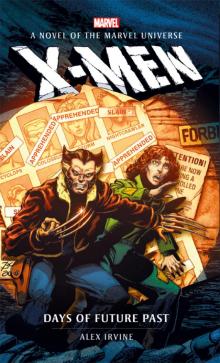 Marvel Novels--X-Men
Marvel Novels--X-Men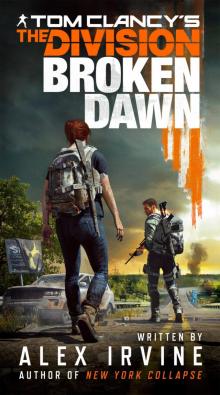 Tom Clancy's the Division
Tom Clancy's the Division Pacific Rim: The Official Movie Novelization
Pacific Rim: The Official Movie Novelization Anthropocene Rag
Anthropocene Rag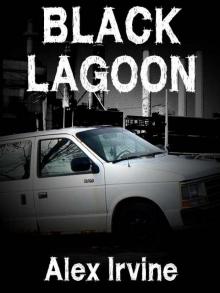 Black Lagoon
Black Lagoon Phase One: The Incredible Hulk
Phase One: The Incredible Hulk Phase One: Iron Man
Phase One: Iron Man Pacific Rim
Pacific Rim Pacific Rim Uprising--Official Movie Novelization
Pacific Rim Uprising--Official Movie Novelization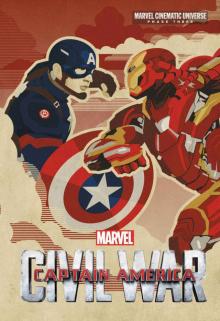 Phase Three: Marvel's Captain America: Civil War
Phase Three: Marvel's Captain America: Civil War Phase One: Thor
Phase One: Thor Dawn of the Planet of the Apes: The Official Movie Novelization
Dawn of the Planet of the Apes: The Official Movie Novelization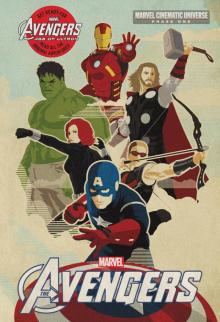 Phase One: Marvel's The Avengers
Phase One: Marvel's The Avengers Phase One: Captain America
Phase One: Captain America Exiles
Exiles The Seal of Karga Kul: A Dungeons & Dragons Novel
The Seal of Karga Kul: A Dungeons & Dragons Novel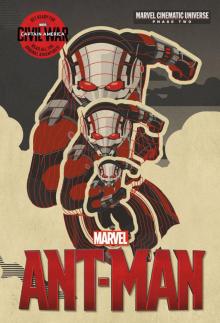 Marvel's Ant-Man - Phase Two
Marvel's Ant-Man - Phase Two The seal of Karga Kul (dungeons and dragons)
The seal of Karga Kul (dungeons and dragons) Mare Ultima
Mare Ultima Phase Three: MARVEL's Doctor Strange
Phase Three: MARVEL's Doctor Strange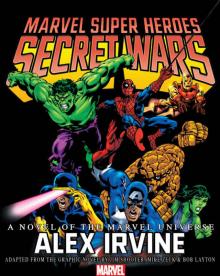 MARVEL SUPER HEROES SECRET WARS
MARVEL SUPER HEROES SECRET WARS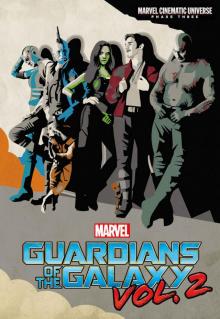 Phase Three: MARVEL's Guardians of the Galaxy Vol. 2
Phase Three: MARVEL's Guardians of the Galaxy Vol. 2 Dawn of the Planet of the Apes
Dawn of the Planet of the Apes Independence Day: Resurgence: The Official Movie Novelization
Independence Day: Resurgence: The Official Movie Novelization